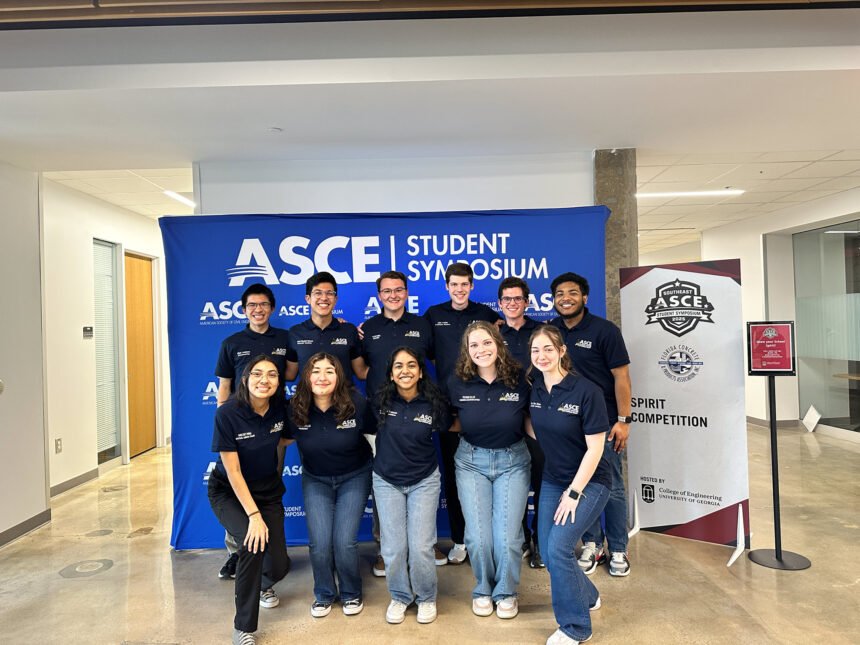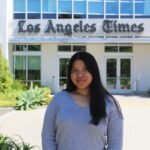The Georgia Institute of Technology secured its third consecutive first-place title at the 2025 ASCE Sustainable Solutions Competition finals.
Team captain Phoebe Ellis sees their victory as a culmination of the team’s efforts to connect with one another.
This year’s team was almost evenly split between new and returning members, which allowed the group to charge at the problem from multiple angles.
“Returning members learned a lot through that process and know what’s possible and how to do certain things, but at the same time, we got a lot of new people who brought new ideas we never considered,” she said.
The society-wide ASCE Sustainable Solutions Competition is an annual event that challenges student teams to grow their understanding of sustainability and apply sustainable solutions to common engineering problems. Competitors used an Envision rating tool to examine problems holistically and work through many different elements of a conceptual site design.
This year, the competition challenged participants to transform an office building – ASCE’s headquarters – into a mixed-use space that enhances the area around it and embraces sustainability principles. Teams were scored based on a technical design report, poster presentation, Envision criteria justifications, and an interview. The Georgia Institute of Technology ranked first in three out of the four categories.
The University of California, Berkeley came in second overall, and North Carolina State University placed third. Nearly 100 teams competed in the event.
“We had won the past two years, so I definitely felt a lot of pressure to continue that legacy,” Ellis said.
When they won, what made it even more fulfilling was the pride she felt in her team’s hard work, which was empowered by new and existing bonds that were developed throughout the process.
“The older people who had been on the team for a while developed a really strong bond and good friendships through this team, so they were able to bring the younger members in, make them feel comfortable, and help them develop friendships between themselves,” said Ellis.
The welcoming environment the older team members created “made people comfortable with sharing and working together and definitely made people want to try hard to help their friends out,” she continued.
This energy also cultivated an eagerness to reach out to experienced civil engineers for help with concepts the team had not yet mastered.
“Even though we have lots of experienced members who have been on the team for a while, there’s always something new that we have to learn – sometimes things I’ve never learned in class,” said Ellis.
She emphasized that the competition “wasn’t a solo journey.”
“It was all of us together and all the collaboration that really made our team shine,” she said.











